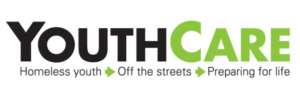Grantee: YouthCare
Timeframe: April 2021 – March 2022 | Amount: $14,974.73
YouthCare has relocated its shelter to a permanent location in Rainier Beach, which will include installing a physical and behavioral health clinic pod. A logistical planning process with project partners will ensure the clinic’s success.
PHPDA Nimble Grant Funding will fund the planning and coordinating of the South Seattle Shelter Wellness Clinic project. It will cover the personnel time that will be committed to the creation of a coherent plan:
- Meetings with providers: Kaiser, Swedish and Ryther to ascertain what is needed to create a viable health clinic for South Seattle Shelter youth.
- Identifying resources and determining partners’ resource contributions.
- Developing MOUs for long-term partnerships, information sharing, client confidentiality.
- Seeking legal counsel regarding liability and risk factors and creating the binding documents for the clinic partnership.
The following additional activities will inform the planning process and ensure the clinic’s relevance and efficacy:
- Workshops with youth to help identify Wellness needs and outcomes and will ensure that client voices are integrated into the development of clinic services.
- Coordination with YouthCare’s Program Quality Improvement process: Identifying outcomes and integrating them into the new Caseworthy Client Management System so that client progress can tracked and the effectiveness of programs measured.
The future clinic will be co-located with the YouthCare shelter in the very diverse BIPOC and immigrant community in Rainier Beach. Keeping young people in proximity to their communities of support improves their chances of gaining stability, and the South Seattle Shelter was established precisely for this reason. The South Seattle team’s Program Manager, Modou Nyang, was intentional in hiring staff that reflects the community it serves. With its 13 staff members, the team has the linguisitic capacity for communicating in Arabic, Amharic, English, Foula, Mandinka, Spanish, Tagrina, and Wolof, as well as cultural competency with ethnic identities.
The clinic will be in a mobile unit or external pod conveniently co-located with the shelter. This proximity and accessibility will increase the chances of young people accessing preventative or urgent services when they need it, rather than delaying treatment. The health services will be age and developmentally appropriate for young people. YouthCare staff and Case Managers will be helping youth overcome the barriers: helping to secure IDs, making appointments and ensuring follow-through and advocating for clients. Additionally, YouthCare staff can give clients a warm hand off to health providers, thereby reducing some of the fear and distrust many homeless youth have of adults in general and providers in particular.
As part of this planning process, youth voice will be intentionally gathered as part of YouthCare’s Program Quality Improvement process: first to help YouthCare identify needs and the short-, intermediate- and long-term outcomes that contribute to the goal of Health & Wellness, then to provide the standards by which YouthCare can measure their progress towards those goals, and inform the process of assessing and refining the program. Youth voice and feedback will thus be integrated throughout the planning and implementation of the clinic project.
About Our Grantee
YouthCare
YouthCare builds confidence and self-sufficiency for homeless youth by providing a continuum of care that includes outreach, basic services, emergency shelter, housing, counseling, education, and employment training.
